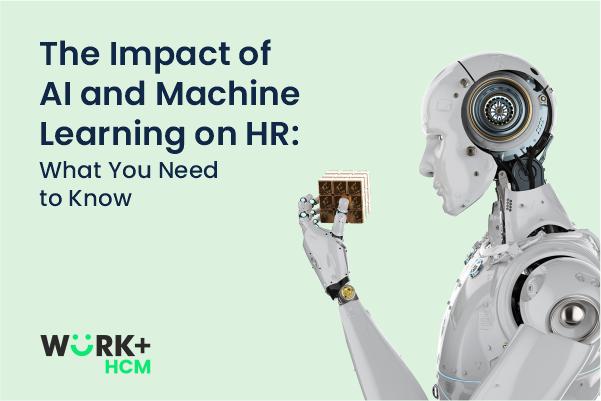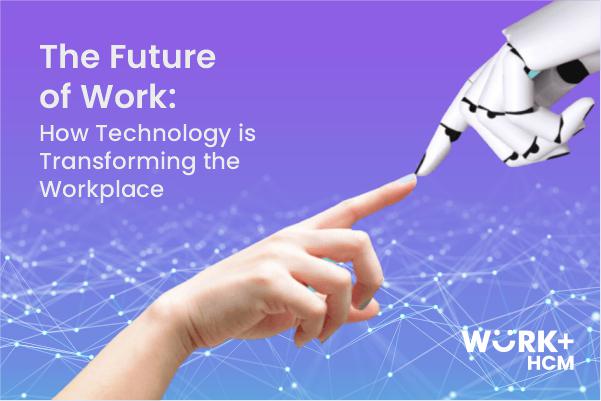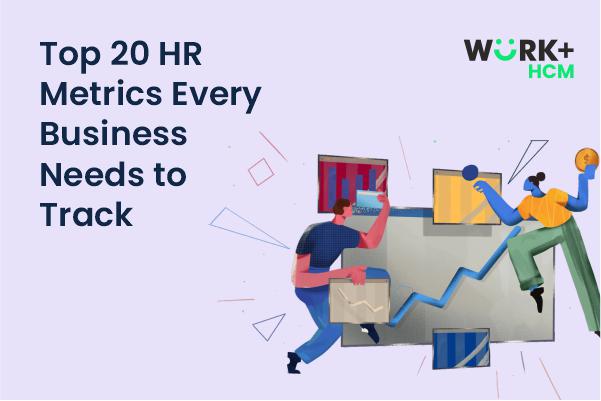Beyond Automation The Next Phase of HR Digital Transformation in UAE

Beyond Automation: The Next Phase of HR Digital Transformation in the UAE
Jessica Calaoagan
October 22, 2025 | 8-mins read
The UAE has managed to establish itself as a center for innovative and digital-first strategies for quite a long period of time. The country has not only government services but also financial technology and other areas. It has consistently adopted the latest technologies to be efficient and competitive. The Human Resources (HR) department is also following the same trend. The process has started with the automation of payroll and attendance systems, and now it is moving towards a more comprehensive change, which is a more significant shift, supported by technologies like artificial intelligence (AI), machine learning (ML), and employee experience platforms.
HR digital transformation in the UAE is a future topic that this article delves into. The focus of the article is on how companies are using the power of generative AI, employing machine learning and experience platforms to integrate, engage, and create more agile and employee-centric organizations.
Generative AI and Machine Learning: Redefining Core HR Functions
1. Talent Acquisition
Getting the best people to work for you in the UAE has always been troublesome due to the competition and the different cultures of the workforce. However, AI has become indispensable in the revamp of the hiring process.
⦁ AI-powered screening: The Mode of working can be completely changed by simply replacing manual sifting of hundreds of CVs with machine learning algorithms that automatically extract, match, and then rate the candidate profiles according to the likelihood of success.
⦁ Generative AI for job descriptions: The use of generative AI by recruiters can become a great help in writing more inclusive job descriptions, tailored to specific roles and more engaging, hence attracting a wider pool of candidates.
⦁ Predictive hiring: By using AI, the hiring data can be analyzed, and the entire model can be used for predicting the best employees who will work well with the company and stay for a longer time.
Since the UAE is a place where people from other countries work in a different culture, AI-based systems help in ensuring a bias-free hiring process that involves the filtering of demographic information and concentrating only on the skills and experience of the candidate.
2. Performance Reviews
Traditional performance reviews are usually criticized for being biased and subjective in nature. Organizations can use AI to make a shift to
⦁ Data-driven insights: The machine learning algorithms can analyze the various performance metrics that include attendance records, customer feedback, and project results to show the performance of an employee from a holistic perspective.
⦁ Bias reduction: The AI-powered generative tools can assist managers in writing less biased performance reviews by lowering the influence of the unconscious bias that is thought to be present in them.
⦁ Real-time feedback loops: The AI-powered dashboards enable both managers and employees to continuously monitor their progress rather than being able to do it only during annual reviews.
Such a culture of transparency and continuous improvement is created, which is in line with the UAE’s national efficiency and excellence drive.
3. Learning & Development (L&D)
Upskilling employees remains the number one priority in the UAE, and this is especially the case with the government’s emphasis on the creation of a knowledge-based economy. AI-powered learning platforms are revolutionizing training programs:
⦁ Personalized learning paths: The working of machine learning algorithms is that they recommend a course for an employee based on his/her existing skills, career goals, and job requirements.
⦁ Adaptive learning systems: Generative AI is offering new and varied types of content to fit the learner’s service – quizzes, case studies, or simulations—each to be made at the learner’s level.
⦁ Predictive skill gaps: The use of AI to analyze workforce trends can help predict what skills will be in demand in the future and train employees in advance.
These improvements put UAE companies in a position where they can remain competitive in such industries that are changing very fast as fintech, healthcare, and logistics.
Employee Experience Platforms: Moving Beyond Back-Office Automation
Although automation has simplified the back-office operations of the human resources department, the next phase of HR digital transformation in the UAE, represented by employee experience platforms (EXPs), aims to focus on employees.
Key Features of Employee Experience Platforms:
⦁ Self-service portals: Employees can access their payslips, update their personal details, apply for leave, or request letters without the intervention of the HR department.
⦁ Feedback systems: Regular pulse surveys and anonymous feedback channels enable the management to gauge employee sentiment instantly.
⦁ Internal communication tools: The integrated chat and announcement features provide employees with a sense of belonging; hence, they are especially useful in hybrid or remote work setups.
⦁ Career development dashboards: Tailored learning and career advancement opportunities have a positive impact on employee retention.
By the implementation of these platforms, the organizations in the UAE are capable of enhancing the level of satisfaction, reducing the rate of turnover, and creating a more productive and engaged workforce. For businesses seeking solutions, Our HR Software UAE offers a comprehensive suite to unify automation with employee experience.
UAE Case Studies: ROI from Digital HR Transformation
Several UAE organizations have already realized tangible benefits from digital HR transformation:
Case Study 1: A Leading UAE Retail Chain
The retailer converted their payroll, onboarding, and attendance systems across the different stores.
⦁ Results: The new processes led to the resolution of payroll errors by 70%, the acceleration of new employee onboarding time by 40%, and the reduction of employee turnover in the first year by 15%.
⦁ Return on Investment: The company saw the benefit of its investment within 18 months due to savings in administrative costs and retention improvement.
Case Study 2: A Regional Logistics Company
The company integrated a performance management platform powered by AI with real-time dashboards.
⦁ Result: Better measurement of productivity, the recognition of the best performers, and the limitation of the influence of bias on evaluations were realized.
⦁ Return on Investment (ROI): The company could raise the workforce productivity level by 20% within two years, thus being able to enjoy the benefits of their investment in less than two years.
Case Study 3: A Healthcare Provider in Dubai
The provider went on to implement an employee experience platform to facilitate feedback, communication, and learning & development.
⦁ Outcome: Employee satisfaction scores increased significantly by 25%, and the completion of training courses increased by 35%.
⦁ ROI: One of the major benefits includes the improved patient service ratings, as the better engagement of employees led to more efficient provision of care.
These benchmarks provide evidence that digital transformation in HR departments is not merely about cutting costs, but also has a direct, positive impact on employee engagement, as well as business growth.
To dive deeper into upcoming trends, organizations can explore insights on the future of HR technology
Key Challenges in HR Digital Transformation in the UAE
Despite the stepping up, organizations are still walloped by different issues that they need to resolve to be able to accomplish an HR digital transformation in the UAE.
1. Change Management
Conflicted with resistance to change, the staff and management are not only unfamiliar with the new systems but also fear losing their jobs. Hence, the anxiety. So, both management and staff can be on the receiving end of such resistance. Change in its success requires not only extensive communication but also practical training and the leadership’s support.
2. Data Privacy & Local Compliance
In the United Arab Emirates (UAE), data security and employee laws are very strict. When it comes to employee data storage or data processing, companies need to ensure that they follow the rules, and this applies more to cloud-based platforms.
3. Vendor Selection
The wide range of HR technology vendors is the prime reason that picking the right one is so a hard task. The companies ought to scrutinize whether the services rendered by the vendors can meet their needs in respect to scalability, whether the services can be integrated with their existing systems, and whether they are capable of supporting the local requirements of the UAE.
4. User Adoption
Even the most complicated platforms will not be successful if employees do not use them. Moreover, it is crucial to ensure that the design is user-friendly, a mobile version is available, and support is continuous.
The Road Ahead: Human-Centric Digital HR
The career of AI in HR UAE will simply not be limited to the substitution of manual tasks only, but it has been projected that the human resources department will be a strategic partner. A company can implement an automation system that will also use generative AI and will have a good employee experience platform, which in turn makes an organization a culture where workers become the network of value, support, and empowerment.
For businesses looking to embark on or accelerate their digital journey, solutions like Workplus HR Software UAE offer integrated platforms covering payroll, onboarding, performance, and engagement.
Conclusion
UAE’s human resource (HR) scenario is experiencing a major change. On top of automation, the use of generative AI, machine learning, and employee experience platforms is changing to a great extent how companies hire, manage, and retain their talent. Those organizations that accept this change will not only become effective but also create competent workforces for the future that are in line with the UAE’s national vision of innovation and sustainability.
Such a moment is already here. Companies can genuinely transforming employee experiences through the smart deployment of human-centric technologies and consequently go beyond the mere digitization of processes – a move that will make them both productive and competitively advantaged in the digital era.


